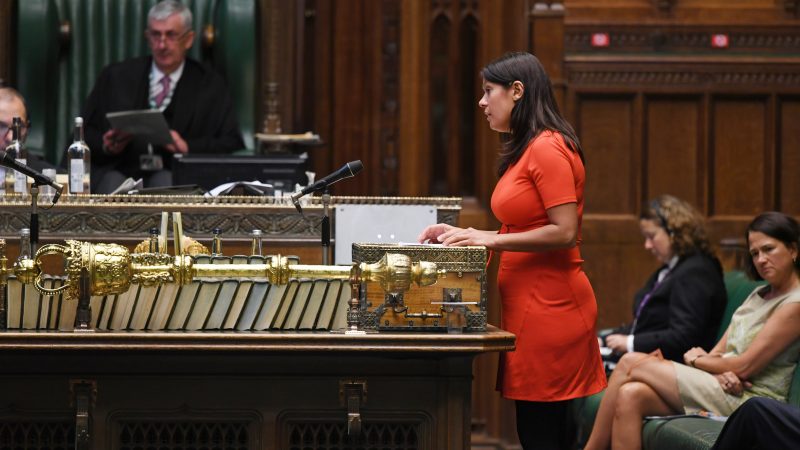
For decades, the communities that used to power our country have only got the crumbs from the table. Too many places have been the losers in our economic settlement. Many of them are post-industrial and coastal towns, where good jobs have gone and have never been replaced. That has meant young people have had to get out to get on, moving far away from their homes and their loved ones just to find decent opportunities.
The spending power that leaves with them causes high streets to collapse, local institutions to decay and transport networks to close down. The people left behind are ageing, miles away from their children and grandchildren. They feel the aftershocks in every part of their life.
Across Britain, we are proud of the places we call home. But it is a love and pride often tinged with despair and sadness. This feeling is palpable on high streets, in workplaces and in the local pubs of the places that once powered this country. For these communities, that sense of contribution to our national story outweighed even their pay and conditions; it gave entire places pride and purpose.
This profound sense of decline was not inevitable, and it is not irreversible. Building a new Britain must be about putting this right, creating prosperity by matching the ambition of people who want to see their rightful place restored. This mission must have at its heart a focus on spreading opportunity, prosperity and power across the country.
In plain terms, that means putting money back into people’s pockets with good jobs and good wages, so that young people have choices and chances to thrive in their hometowns. Every pound that goes into the pocket of someone earning a living wage goes back out into shops and businesses, rebuilding the foundations of the local economy and allowing high streets and town centres to survive.
But this is also about empowering people to take control of their lives. At the moment, too many people are faced with either limited options or a binary choice between family and home versus opportunity and work. Instead, power and resources should lie as close to people as possible so we have the ability to shape our lives as we need to.
Empowerment means the ability to build our communities in a way that best serves us, recognising differences between different places. It means having the opportunity to strengthen and deepen the social fabric that binds our neighbourhoods together – the pubs, the local business, the post offices and banks and the buses. It means having a real sense of control over where we live and the decisions that affect our lives.
We in our communities know better what we need than mandarins in far-off offices; where politicians too often see problems, communities see solutions. So we should have more choice over how the assets and resources in our communities are used.
The recognition of this simple truth should not be controversial, nor should it be difficult to achieve, but switching to this approach would be a fundamental break from the status quo, a shifting of the mindset that has dominated Westminster politics for generations.
When done well, the rewards of empowering communities are plain to see – just look at places like Grimsby, Preston and Wigan where businesses, community leaders and colleges have been rebuilding Britain from the ground up.
In Preston, the council has developed its assets to build wealth in the community and keep it local. The Wigan Deal is a contract between the council and the people that protects the things that matter to people – like libraries, leisure centres and clean streets – in return for increased volunteering, recycling rates and fostering and adoption.
In Grimsby, the last regional development agency had the foresight to invest in wind energy, levering in private investment to create jobs and apprenticeships for Grimsby’s young people. From the Grimsby docks, they powered the world. Within living memory, there are so many places in Britain that did this too. Why shouldn’t young people in those places still have the opportunity to power us through the next century as their parents and grandparents powered us through the last?
So if ‘levelling up’ means anything, it must deliver good jobs in our hometowns so young people have choices and chances and do not have to get out to get on, where our high streets are thriving because the local economy is thriving, with good local businesses and money in people’s pockets.
Our towns and villages should be better connected to jobs, opportunities, our family and our friends through good transport, digital infrastructure and affordable housing that we have too often been denied. Our town centres should be safe and welcoming instead of plagued by anti-social behaviour, with criminals being let off and victims let down.
People do not need money to restore pride in their communities, the pride has always been there. We need a real plan that puts back what has been lost and with it the power to make decisions for ourselves in the future. We can do this, but only if we do it together.
This essay first appeared in the Fabian essay collection ‘Communities in Control: Pushing power down to spread prosperity out’.




More from LabourList
‘Security in the 21st century means more than just defence’
‘Better the devil you know’: what Gorton and Denton voters say about by-election
‘Unity or division’: Starmer’s message to voters in Gorton and Denton